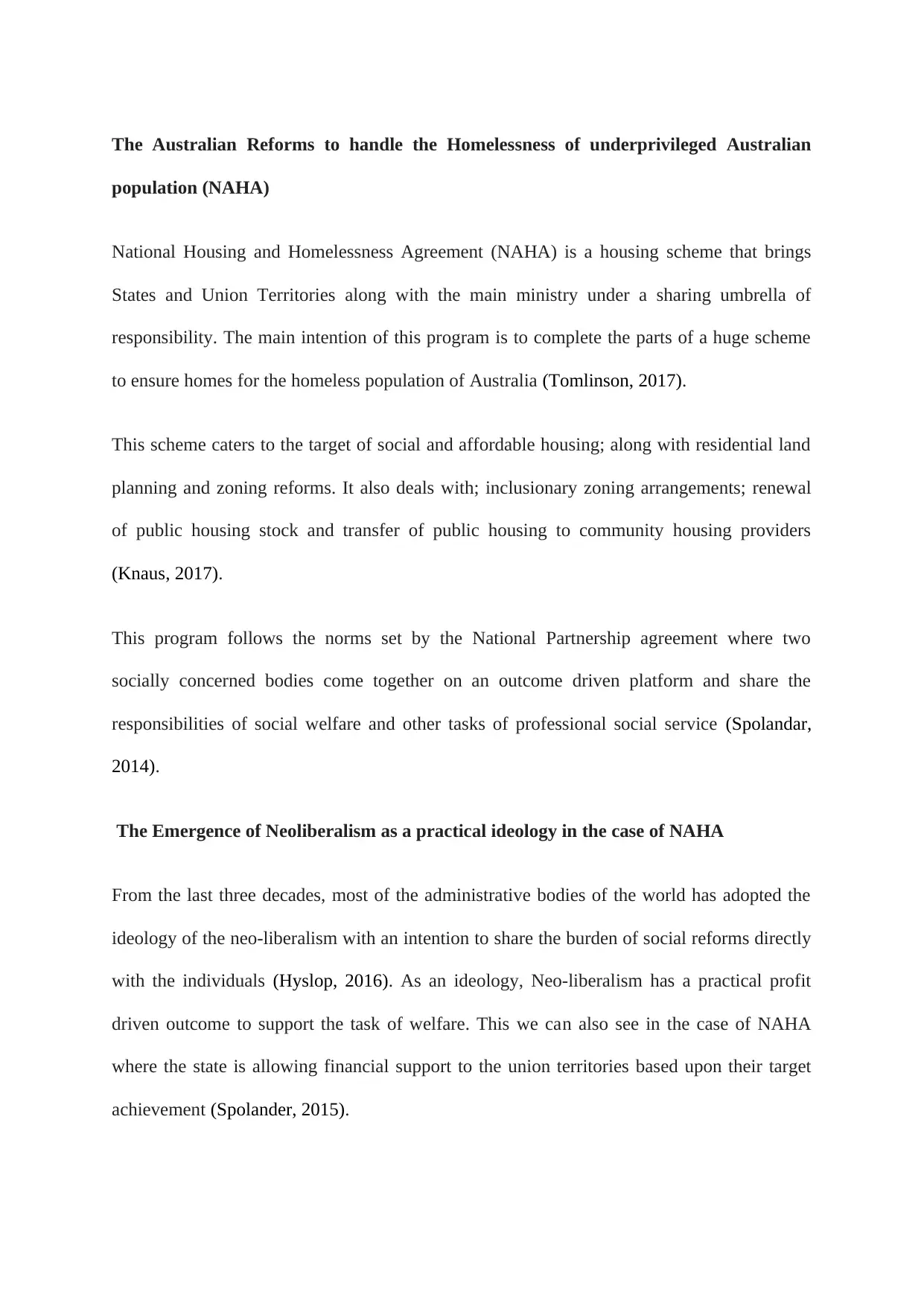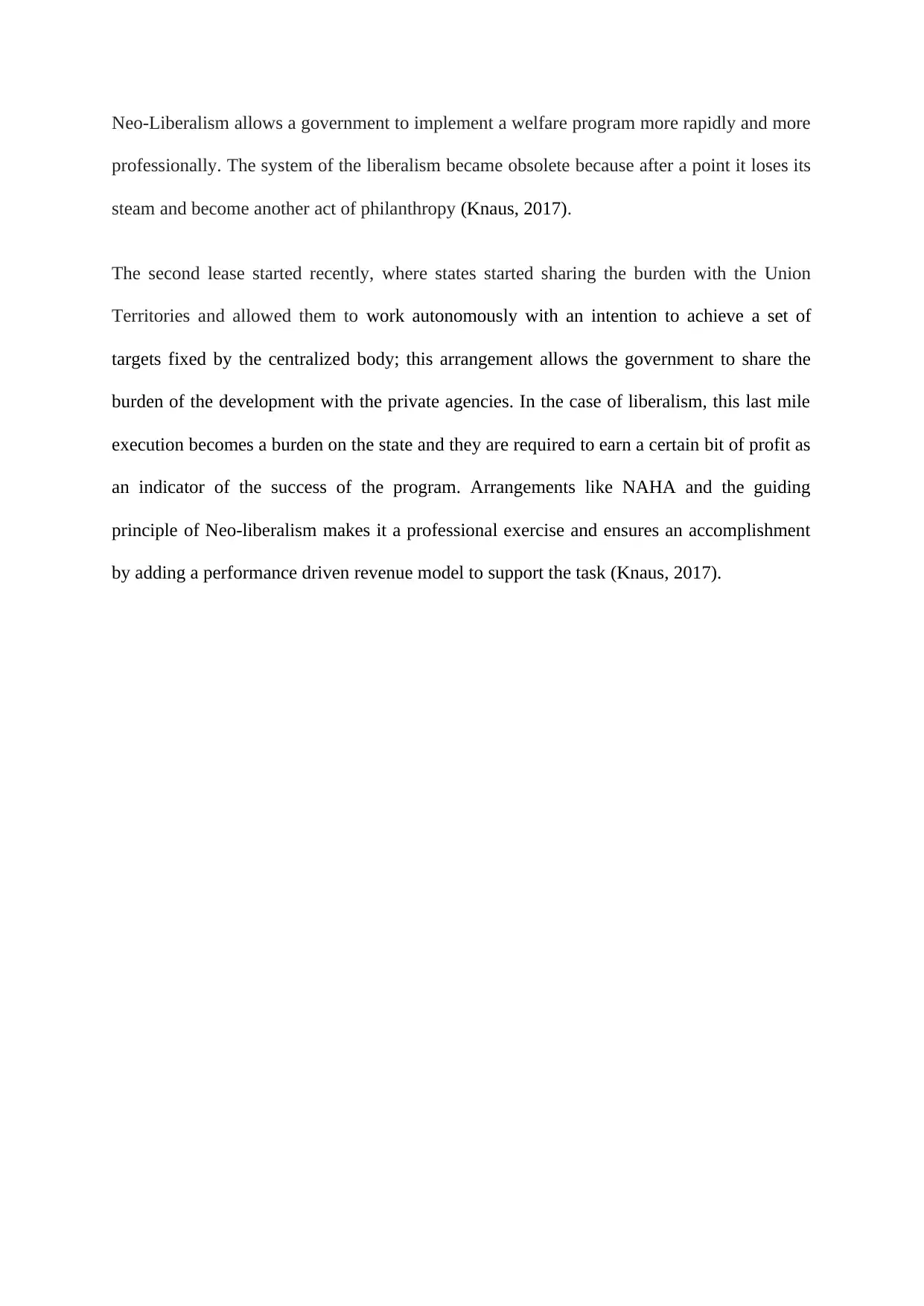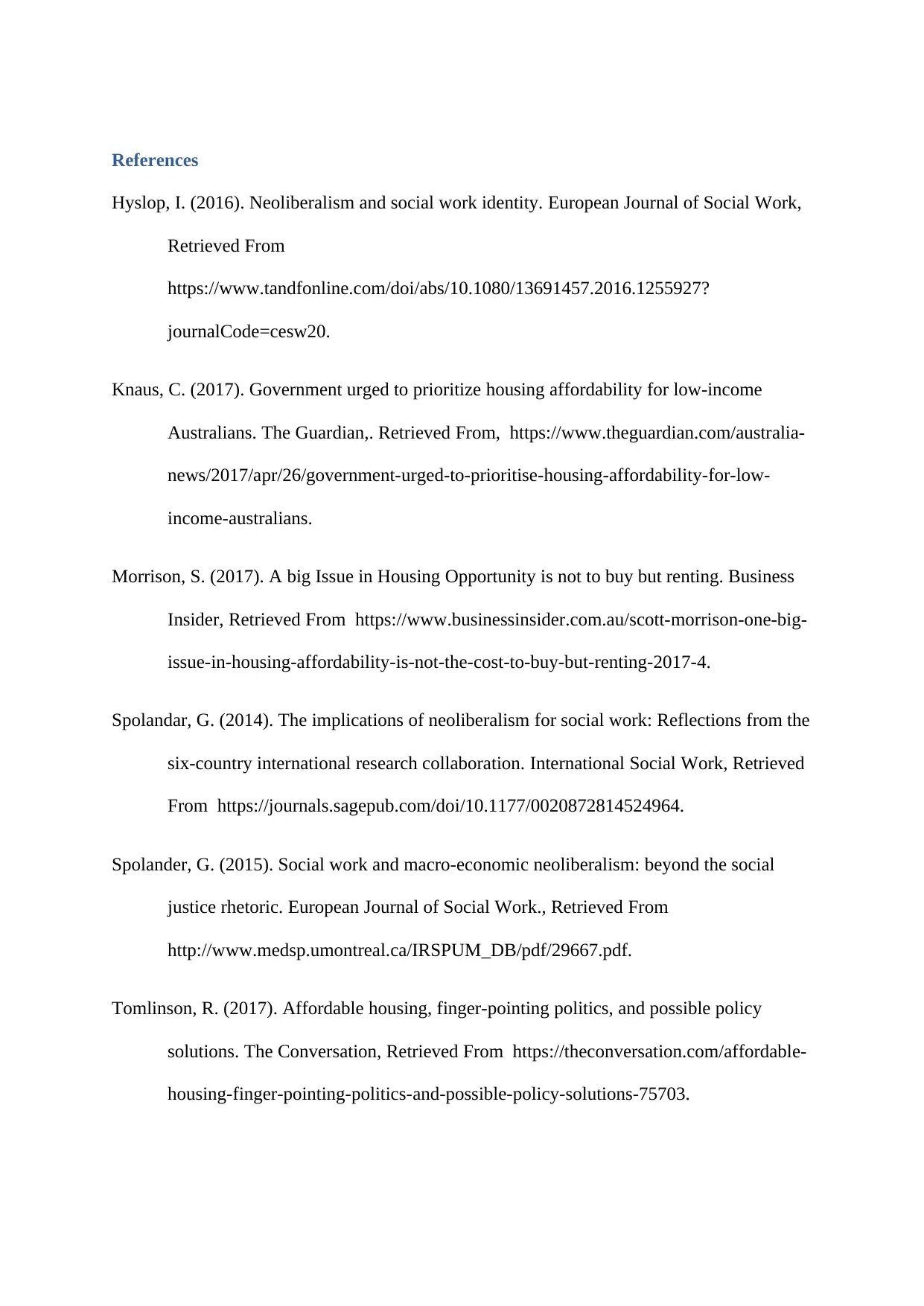The Impact of Australian NAHA Reforms on Addressing Homelessness
VerifiedAdded on 2023/04/03
|4
|508
|292
Essay
AI Summary
This essay examines the Australian National Housing and Homelessness Agreement (NAHA) as a key reform initiative aimed at addressing homelessness among underprivileged Australians. It highlights how NAHA, a collaborative effort between states, territories, and the federal government, seeks to provide social and affordable housing while implementing land planning and zoning reforms. The analysis focuses on the emergence of neoliberalism as a guiding ideology, enabling a performance-driven approach to welfare programs by sharing responsibilities and setting measurable targets. The essay also contrasts this approach with traditional liberalism, arguing that neoliberalism allows for more rapid and professional implementation of social welfare initiatives, ensuring better outcomes through a revenue model that supports the task of addressing homelessness.
1 out of 4





![[object Object]](/_next/static/media/star-bottom.7253800d.svg)